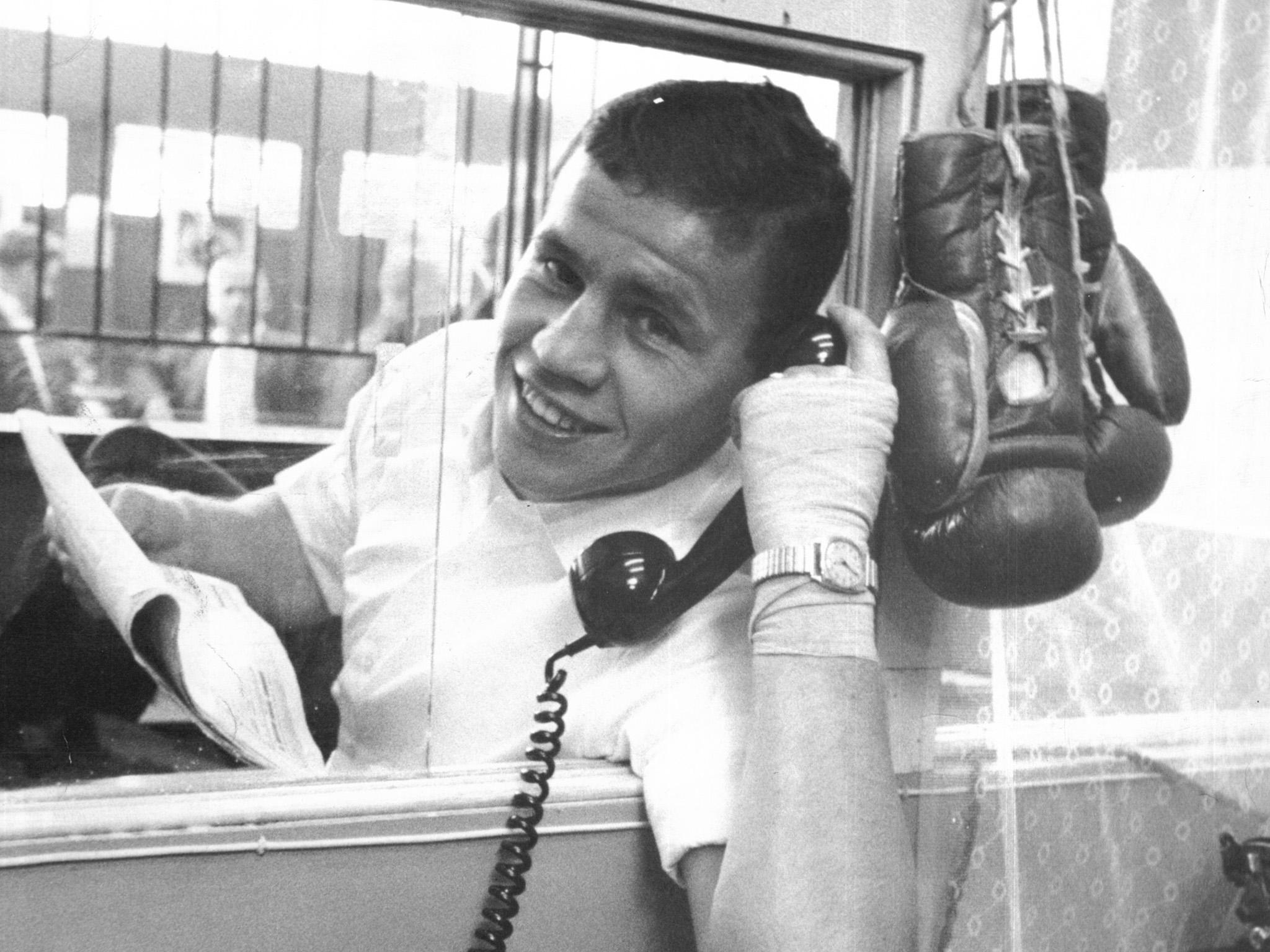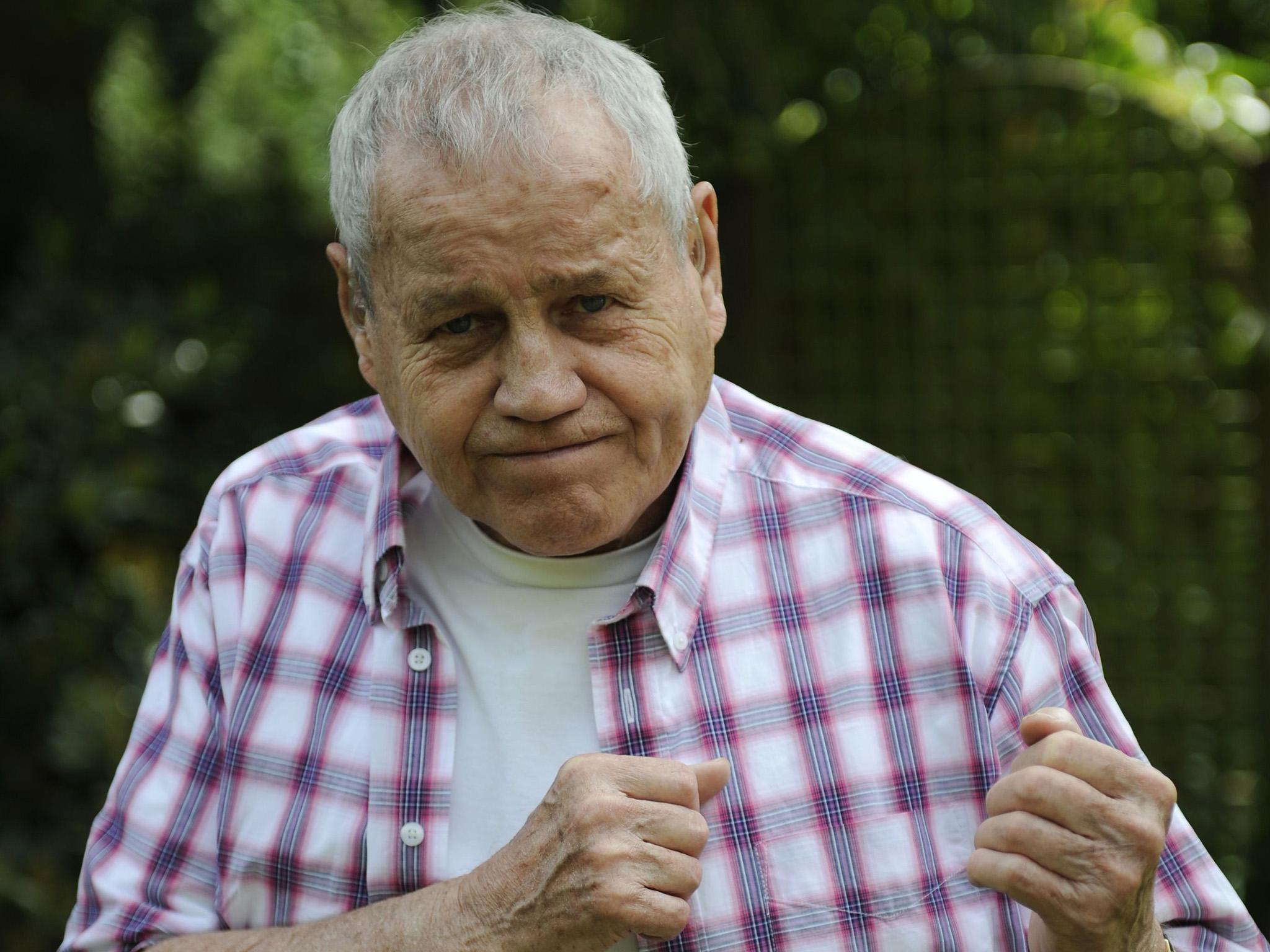Terry Downes: The ‘whirlwind’ boxer who was king for a day and retired aged 28
Downes shrugged off beating a 41-year-old Sugar Ray Robinson – ‘I didn’t beat Sugar Ray, I beat his ghost,’ he said

Your support helps us to tell the story
From reproductive rights to climate change to Big Tech, The Independent is on the ground when the story is developing. Whether it's investigating the financials of Elon Musk's pro-Trump PAC or producing our latest documentary, 'The A Word', which shines a light on the American women fighting for reproductive rights, we know how important it is to parse out the facts from the messaging.
At such a critical moment in US history, we need reporters on the ground. Your donation allows us to keep sending journalists to speak to both sides of the story.
The Independent is trusted by Americans across the entire political spectrum. And unlike many other quality news outlets, we choose not to lock Americans out of our reporting and analysis with paywalls. We believe quality journalism should be available to everyone, paid for by those who can afford it.
Your support makes all the difference.A tough upbringing in London and Baltimore left Terry Downes supremely well-equipped for professional boxing, and he was world middleweight champion in 1961 and 1962, nicknamed “the Paddington Express” for his whirlwind style.
He was born in Paddington, the son of Richard, a mechanic, and Hilda, who worked in a department store, and recalled that, “Every day of my life was a fight day. You’d sock some kid on the nose and his big brother was round later to avenge the family name.”
When he was in his teens his family moved to the US to be with his sister Sylvia, who had gone over to work as a trapeze artist but had lost an arm in a car crash. He joined the Marines and began boxing in earnest, amassing a trophy-laden amateur record, and was on the verge of the US Olympic squad but missed out because he failed the residency qualification.
He returned to Britain instead and turned pro, his all-action style and ready wit rapidly establishing his reputation. He became British middleweight champion in 1958, but lost his first shot at the world title to Paul Pender in Boston in January 1961. In the rematch a few months later, in front of a raucous crown at the Empire Pool, Wembley, he stopped Pender to take the world title.
His reign lasted only 10 months, however, and Pender took his title back in Boston the following year. Downes worked his way back into championship contention over the next two years, despatching the legendary Sugar Ray Robinson on the way. The great man was 41 by that time, and when Downes was asked what it was like to beat one of the greatest fighters boxing had ever known, he replied: “I didn’t beat Sugar Ray. I beat his ghost.”

In 1964 he had a tilt at the world light-heavyweight title, and he was ahead against Willie Pastrano in Manchester, but went down twice in the 11th and lost. It was his last fight: “That was as good as I could do,” he said. “If I couldn’t win that fight, it was all downhill from there.”
Unlike many a boxer, he had been sensible with his money: in 1960, when off-course betting was legalised, he had taken his father’s advice and opened a betting shop, which became a chain, and he made a tidy sum when he sold out to William Hill. He had a car dealership and a nightclub, and he also dabbled in acting, including roles as a hunchbacked servant alongside Sharon Tate in Roman Polanski’s The Fearless Vampire Killers (1967) and a bodyguard in Derek Jarman’s Caravaggio (1986). He was awarded the British Empire Medal in 2012 for his sporting achievements and his charity fund-raising.
He is survived by his wife Barbara, who he married in 1958 – she would initially have nothing to do with him because when they first met, at a club, he was covered in bruises from a recent fight – and their four children. During his career he had submitted to the spartan lifestyle boxing demands, but in retirement, said Barbara, he lived life to the full. “He had a lot to make up – and he did it in spades,” she said.
Terry Downes, boxer, actor and businessman, born 9 May 1936, died 6 October 2017
Join our commenting forum
Join thought-provoking conversations, follow other Independent readers and see their replies
Comments